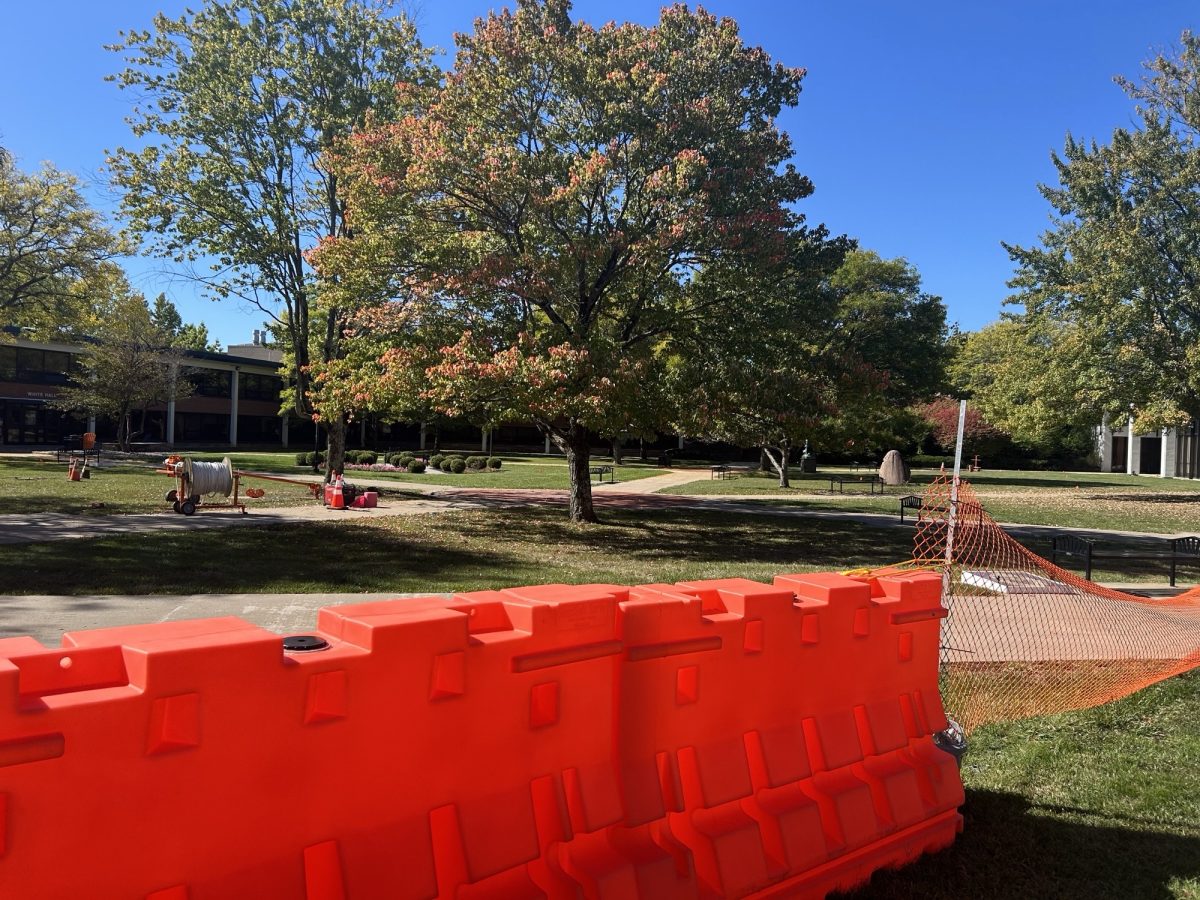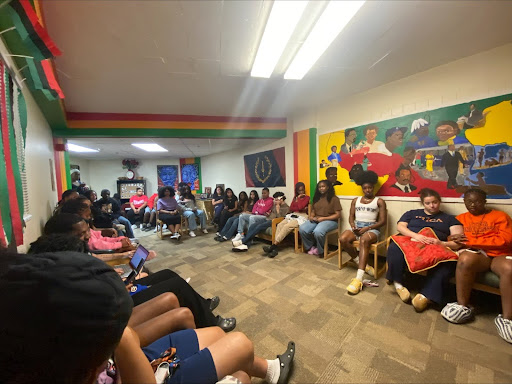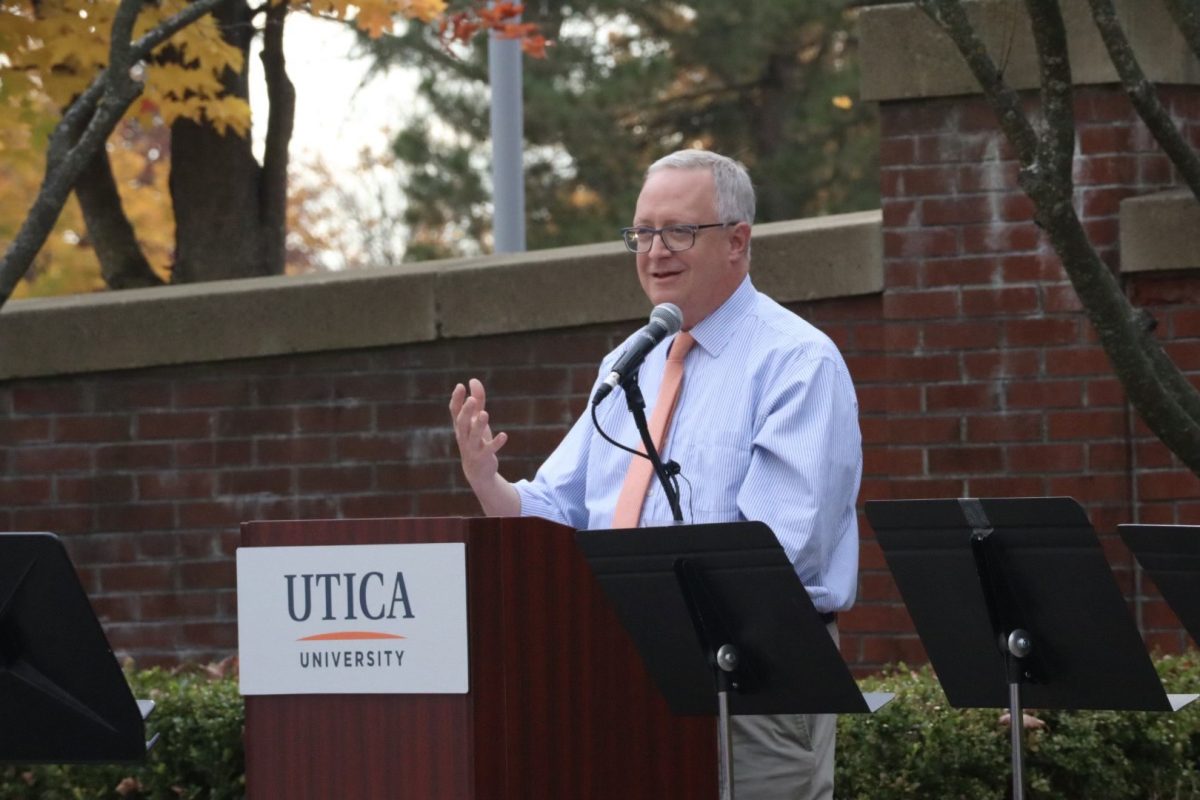Every student at Utica College is required to take classes in the Core Curriculum and changes are coming to this General Education requirement. Faculty members are in the process of revising the Core Curriculum with the goal of having it implemented to start the Fall 2022 semester.
What is the Core Curriculum?
Utica College is a liberal arts institution that promotes a 34 to 55 credit Core Curriculum. There are three components to requirements: Basic Skills, General Education and Writing Intensive Courses.
As of 2021, Basic Skills lands students into writing, math, foreign language, oral communication and computer usage courses. Upwards to 24 credits are required to completely fill this section. According to the Utica College website, these sections allow for foundations of understanding that are universal.
The General Education category encompasses humanities, natural sciences and social sciences. A sum of 25 credits will complete the second component. The writing intensive coursework will only garner six total credits, but is meant to exercise professional levels of writing.
Exemptions from the Core Curriculum can occur if college-level courses were taken in high school. Students can take a Math Placement Test and a Computer Proficiency Assessment Test as an exemption from these Basic Skill classes.
Recent Posts
- Slashed SGA budget sparks student frustration at recent meeting
- Editorial: Your campus, your voice – How to reach us when you want to speak out and how we make editorial decisions
- Op-Ed: Why Black student perspectives matter in campus reporting
- Conservative activist Charlie Kirk’s death shocks Utica University students
- Op-Ed: Utica student looks to start new multi-faith discussion group on campus
Utica College cannot change any of the Liberal Arts requirements in New York State. For instance, 60 total credits are mandatory for a Bachelor of Science and 90 for a Bachelor of Arts, such that changes to the General Education courses have to meet the same credit hours.
“The idea of a General Education, or even a Liberal Education, is different from the Liberal Arts but includes much of its underpinnings,” Associate Professor of Management and Business Analytics Brett Orzechowski said. “This is also embedded in the Utica College’s founding principles. Colleges offer a General Education to satisfy a student’s curiosities and to give them choice to explore. The idea is to have something in place but be flexible enough to remain contemporary and progressive.”
Both Orezchowski and Assistant Professor of Criminal Justice Shanna Van Slyke were part of a summer team created to discuss General Education changes. The current core revision committee is building off the work cultivated over the summer.
Six tenured faculty members formed a committee to help steer the change: Biology Professor Lawrence Aaronson, Occupational Therapy Professor Nancy Hollins, History Professor David Wittner, Accounting Professor Glen Hansen,. Physical Therapy Professor Ashraf Elazzazi and Public Relations/Management Professor Patricia Swann.
“The composition of this committee is two members representing each school,” Swann said. “The idea with this group is that we will make faster progress than other attempts with a smaller group.”
What Sparked a Change?
The General Education curriculum has been revised several times in Utica College’s history. The most recent attempt was 12 years ago but has been stagnant since.
Some students feel that the current Core Curriculum offerings need to be more major specific.
“Some of the requirements I can understand, some of them are a little less related to my major,” first-year nursing major Adnan Salkanovic said. “I would make them all specifically related to my major instead of having some outside of it that I don’t think would help me in the future.”
Several data points have been collected from faculty members, student engagement surveys and other modes of insight from students that a change is necessary.
“We’re looking at college-wide learning outcomes and learning goals and there are six of them that include communication and information literacy,” said Aaronson, who has been a part of five General Education revision discussions throughout his 34 years at Utica College. “Using that as our foundation, we’re trying to create new avenues for students to satisfy these requirements and learn the type of information that they would need from them in a more relevant, possibly more enjoyable way that is attractive to the student body.”
According to the 2018 Ruffalo Noel-Levitz Student Satisfaction Inventory survey, a measurement of what is important to students and satisfaction levels, 36% of students responded that UCC 101/COR 123 provided them with useful skills and information. Around 63% responding to the same survey indicated that the concept of these courses is important.
What is Being Proposed?
The goal of the General Education revision is to make the required credits accessible by flexible and relevant means. There is also a hope that new courses, combining important skills with pressing world issues that concern students, will be offered.
For instance, these proposed courses might involve topics such as global warming in an interdisciplinary format. With this example, there might be a scientific, political or economic portion of the course being offered. Another possible course might be one that focuses on racial diversity within the United States.
Another goal is that the future flexibility of General Education will allow for more experiential opportunities offered to students.
“Administration has pushed for a GenEd that includes experiential learning and major-related experiences in students’ first year,” said Van Slyke, who recently conducted a mock-crime scene for one of her classes. “We wholeheartedly agree and appreciate administrative support for making this happen. Best practices research on student engagement, learning and retention support the needs for these initiatives.”
The procedure for getting a new General Education curriculum is a long-term process. The committee must propose a few models to a faculty workshop occurring in May to engage faculty members. Once the framework has been firmly established with new courses, pathways and other gaps being filled, attention will be turned to the Faculty Senate.
The Faculty Senate will view the solid models in September and vote in October. If the vote is successful, the rest of the academic school year will be spent putting together adequate courses and adhering to the proposed paperwork. The goal is to have implementation fall of next year.
Despite there being a six-member committee, input from faculty members is still being weighed. When the new General Education model is officially added to the curriculum, some departments will have to evaluate their current offerings and make the necessary changes.
“We’re all different as people,” Hanson said. “The faculty have different opinions and experiences and while everyone wants what is best for students, there is a difference of opinion on what that is.”
Changes to the Core Curriculum will likely have impacts on several UC departments, especially the Humanities which currently encompass three categories within General Education: Literature, Fine Arts and Philosophy/Semiotic Systems.
“Departments currently teaching core courses are likely to be the most affected by a change,” said Gary Leising, Professor of Enlighs and current Chair of the English Department. “But I’m sure that departments like mine will be able to bring good energy, innovation, and intelligence to whatever redesigned core the future holds.”
What are the Effects on Students?
Current students will have the option to take the updated General Education courses if they are still attending the college by the implementation date. However, if this decision is made by a student, there is a possibility that it might impact progress towards their current degree.
Incoming freshmen will be required to take the new General Education courses. The state-determined credit amounts will be unchanged along with the essential skill components.
“There are some unchangeable pieces to this, regardless of when you come in, you’re going to need some critical thinking, math and written communication,” Hollins said. “Those pieces don’t change, but how you learn them and the context around them should be interesting and motivating. You should want to put the effort into it.”













































































































































